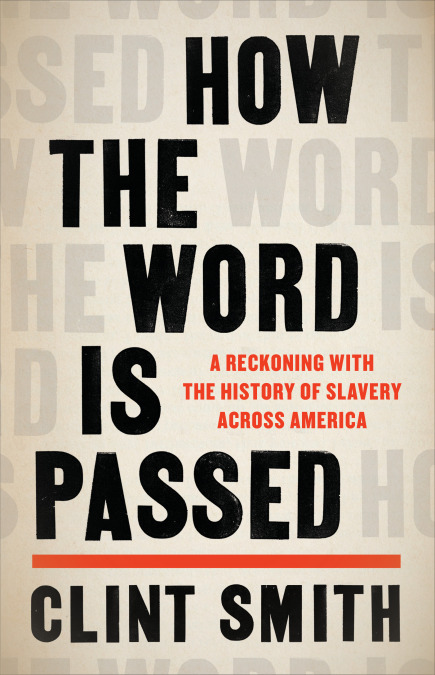
HOW THE WORD IS PASSED: A Reckoning With the History of Slavery Across America
黑奴未竟之旅:美國奴隸制度的反思
內容介紹
《紐約時報》精選100本值得關注的書!文學雜誌The Millions 、《圖書館期刊》(Library Journal)、Buzzfeed、《時代》雜誌、出版者周刊 (Publishers Weekly)評為2021年的最期待的新書之一!The Rumpus雜誌列入2021年必讀清單!
作者克林特·史密斯(Clint Smith)本身是作家兼詩人,在《黑奴未竟之旅》(How the Word is Passed)他從個人家族遭遇談起,從自己的家鄉新奧爾良作為起點,帶領讀者走讀一趟令人難忘的旅程,旅程經過新奧爾良的多座碑石、景點,這些遺物的存在誠實地展露過去,述說著一個世代相傳的故事,故事的主題——奴隸制,貫穿著黑人運命、潛移默化地留存在整個國家的血液裡。
它是發生在維吉尼亞州的蒙蒂塞洛種植園的故事,當時奴役了400多人。它是惠特尼種植園的故事,該園區至今仍保留著當時的建築、展演著奴隸制的演進、執行。它是位於路易斯安那州的安哥拉監獄的故事,從安哥拉奴隸種植園的舊址上建造出一座美國安全等級最高的監獄,18000英畝的佔地裡頭囚禁著大量的黑人無償勞動。當然也是數以千計的邦聯軍長眠的彼得斯堡布蘭福德墓地(Blandford Cemetery)過去的風雨。
這是對奴隸制一場全面的探討,奴隸制的存在持續在美國社會留下一道道傷痕,那些真實存在在南方的種植園、監獄裡的事件,形塑成現代美國人的日常,例如紀念奴隸制結束的六月節、充滿黑人文化的曼哈頓下城區。在這些看似稀鬆平常的小事裡,隱藏著黑奴被作為物品交易、毫無自由與尊嚴的悲痛歷史,僅管奴隸制度已經廢除,但這些傷痛和陰影仍持續往下一個黑人世代烙印著……

相關影片
作者介紹

美國作家,詩人和學者。所屬《大西洋》雜誌作家,也是詩歌集《計數下降》(Counting Descent)的作者。該書獲得了美國圖書館協會(American Library Association)的黑核心小組(Black Caucus)頒發的2017年最佳詩歌文學獎,並且是NAACP形象獎的決賽入圍。
作品見於《紐約客》(The New Yorker)、《紐約時報》雜誌(The New York Times Magazine)、《詩歌》(Poetry Magazine)、《巴黎評論》(The Paris Review)等媒體。於新奧爾良出生長大,擁有戴維森學院英語學士學位、哈佛大學教育博士學位。
書評
"Suffused with lyrical descriptions and incisive historical details, including Robert E. Lee’s ruthlessness as a slave owner and early resistance by Frederick Douglass and W.E.B. Du Bois to the Confederate general’s “deification,” this is an essential consideration of how America’s past informs its present."―Publisher's Weekly
"The Atlantic writer drafts a history of slavery in this country unlike anything you’ve read before.”―Entertainment Weekly
“An important and timely book about race in America.”―Drew Faust, Harvard Magazine
"In this exploration of the ways we talk about — and avoid talking about — slavery, Smith blends reportage and deep critical thinking to produce a work that interrogates both history and memory."―Kate Tuttle, Boston Globe
"Raises questions that we must all address, without recourse to wishful thinking or the collective ignorance and willful denial that fuels white supremacy." ―Martha Anne Toll, The Washington Post
"Sketches an impressive and deeply affecting human cartography of America’s historical conscience…an extraordinary contribution to the way we understand ourselves." ―Julian Lucas, New York Times Book Review
"With careful research, scholarship, and perspective, Smith underscores a necessary truth: the imprint of slavery is unyieldingly present in contemporary America, and the stories of its legacy, of the enslaved people and their descendants, are everywhere."―TeenVogue
"Clint Smith, in his new book “How the Word Is Passed,” has created something subtle and extraordinary." ―Christian Science Monitor
"Part of what makes this book so brilliant is its bothandedness. It is both a searching historical work and a journalistic account of how these historic sites operate today. Its both carefully researched and lyrical. I mean Smith is a poet and the sentences in this book just are piercingly alive. And it’s both extremely personal—it is the author’s story—and extraordinarily sweeping. It amplifies lots of other voices. Past and present. Reading it I kept thinking about that great Alice Walker line ‘All History is Current’.”―John Green, New York Times bestselling author of The Anthropocene Reviewed
"The summer’s most visionary work of nonfiction is this radical reckoning with slavery, as represented in the nation’s monuments, plantations, and landmarks." ―Adrienne Westenfeld, Esquire
"The detail and depth of the storytelling is vivid and visceral, making history present and real. Equally commendable is the care and compassion shown to those Smith interviews — whether tour guides or fellow visitors in these many spaces. Due to his care as an interviewer, the responses Smith elicits are resonant and powerful. . . . Smith deftly connects the past, hiding in plain sight, with today's lingering effects." ―Hope Wabuke, NPR
"This isn’t just a work of history, it’s an intimate, active exploration of how we’re still constructing and distorting our history." ―Ron Charles, The Washington Post
"Both an honoring and an exposé of slavery’s legacy in America and how this nation is built upon the experiences, blood, sweat and tears of the formerly enslaved." ―The Root
"What [Smith] does, quite successfully, is show that we whitewash our history at our own risk. That history is literally still here, taking up acres of space, memorializing the past, and teaching us how we got to be where we are, and the way we are. Bury it now and it will only come calling later." ―USA Today
得獎紀錄
★ Southern Independent Booksellers Alliance - 2022 Southern Book Prize nonfiction finalist
★ Finalist for the National Book Critics Circle Awards
★ Publisher's Weekly, Nonfiction Best Books of 2021
★ Longlisted for the National Book Award
★ A Time 10 Best Nonfiction Books of 2021
★ Longlist, Goodreads, Best Nonfiction of 2021
★ Named a Best Book of 2021 by The New York Times, The Washington Post, The Boston Globe, The Economist, Smithsonian, Esquire, Entropy, The Christian Science Monitor, WBEZ's Nerdette Podcast, TeenVogue, GoodReads, SheReads, BookPage, Self Awareness, Publishers Weekly, Kirkus, Fathom Magazine, the New York Public Library, and the Chicago Public Library
★ A New York Times Book Review Editors’ Choice
★ Washington Post, 50 Notable Works of Nonfiction
★ Los Angeles Times, Best Nonfiction Gift
★ One of President Obama's Favorite Books of 2021
★ One of John Green’s Two Favorite Books of the Year
★ One of GQ’s 50 Best Books of Literary Journalism of the 21st Century
★ The Root’s Book You Have to Read This Summer
★ A Goodreads Hottest New Book of the Season
★ One of Buzzfeed’s New Books to Add to Your Summer Reading List ASAP
海外授權
UK & BC (Dialogue Books), Germany (Siedler), Japan (Hara Shobo)
